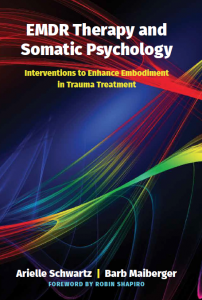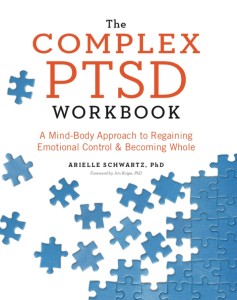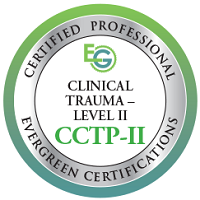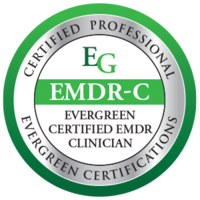Healing Childhood Trauma

Early childhood traumatic events include experiences of neglect, feeling like you didn’t belong or were unwanted, or feeling chronically misunderstood. You might have grown up in a family where your parents had unresolved traumas of their own, which impaired their ability to attend to your emotional needs. Or, in more extreme situations you may been exposed to dangerous abuse. Chronic unresolved childhood trauma is referred to as Complex PTSD (C-PTSD).
Psychologist and neuroscientist, Dr. Allan Schore identifies that our earliest preverbal memories are neither verbal nor stored as images. Instead, they exist as motor patterns and sensations. They are blueprints of our earliest relationships represented by psychophysiological arousal and emotion. Even once a child develops language, traumatic memories are often stored in a disorganized fashion. If you experienced childhood trauma, you may feel burdened by physical and emotional pain or feel haunted by fragments of disturbing memories.
“In order to successfully work with preverbal memories, you must find a way to access the somatic experience related to these early interpersonal exchanges. It is important to know that you can heal C-PTSD. Even though the path to healing can feel daunting, remember that all journeys start with a single step.”
-Dr. Arielle Schwartz
Preverbal Memories

Our earliest memories, called implicit memories, rely upon limbic brain systems that are functional from birth and dominant for the first two to three years of life. According to psychiatrist and author, Dr. Daniel Stern, our preverbal memories hold representations of our earliest relationships—those with our mother, father, and childhood caregivers. The implicit memory system is the basis of what is sometimes referred to as “body memories.”
The role of early caregivers is to regulate an infant through empathic attunement to physical and emotional needs. This process helps reinforce an infant’s internal sense of self.
Dr. Schore, coined the term “psychobiological regulator” recognizing that a caregiver provides external regulation for the infant’s immature physiology. Such regulation influences vagal tone. In other words, the mother’s autonomic nervous system “wires” the infant’s physiology involved in regulatory activities.
Dr. Ed Tronick’s research with depressed mothers indicated that they were more likely to misread their children’s cues. For example, if an infant signals a normal need to disengage, the depressed mother might feel rejected, make an angry face, invade the child’s boundary, or dissociate. At that point, she is no longer available to regulate the needs of the infant. In order to stay regulated, a mother must be able to recognize her own arousal level by attuning to her internal sensations with self-reflection. She uses this process to separate her own early attachment history from that of the current with her child. She might say to herself, “Those are painful feelings from my past but my child is not rejecting me. I can respond to my feelings without making my child responsible for them.” Within this example, the mother attends to her own feelings allowing her to behave in a way that helps regulate the infant’s physiology.
Implicit memories serve as a foundation for a felt sense of self that can persist into adulthood.
Traumatic Memories

American psychologist, Arthur Janov, suggests that trauma at birth is held as an imprint in the nervous system of the newborn and persists into adulthood. These flashbulb memories or imprints are memories that tend to be vividly recalled and are encoded when you are in a state of fear, no matter what your age. A burst of adrenaline appears to enhance memory storage of the events leading up to a traumatic event. Janov emphasized the value of somatic therapies because these imprinted memories must be accessed through working with the felt sense of the body.
Importantly, much of the research on flashbulb memories suggests that they are not reliable and rarely represent an exact replay of the original set of events. This is because our memory system is malleable. When retrieving a preverbal memory, there is often only a felt sense or gist, of the original experience without many of the details. Furthermore, traumatic memories are often fragmented and disorganized compromising a coherent narrative about the past. As human beings, we are story tellers and will fill missing elements of memories—we have a fundamental need to develop a narrative that is consistent with our current sense of self.
It is tempting for both clients and therapists to project a narrative onto somatically experienced body memories. Therefore, therapists need to maintain awareness of their power and influence and avoid suggestive over interpretation of the client’s experience.
Healing Preverbal Trauma

In order to successfully work with preverbal memories, you must access the somatic experience. Modalities such as Somatic Therapy and EMDR Therapy offer valuable tools for healing C-PTSD. Words can sometimes interfere with getting in touch with the body. Therefore, it is important to connect to sensations by building a tolerance for somatic awareness. In therapy, a skilled clinician witnesses the body language of the client but does not to interpret it for them. You work with your felt sense of the memory by describing the experience as it exists in the present moment. Importantly, it is not necessary to know the entire truth about a preverbal traumatic memory in order to find closure.
Since early childhood trauma most often occurred in relationship, therapeutic interventions are most successful in the context of a safe, trustworthy, and compassionate relationship. When working with early developmental trauma, your therapist helps you to learn new regulatory patterns through a moment-to-moment interactive process of verbal and nonverbal communications. As you learn to live “here and now” instead of “there and then” you can increase your capacity for daily practices of self-love and self-compassion.
It is important to know that you can heal C-PTSD. Even though the path to healing can feel daunting, remember that all journeys start with a single step.
Heal and Learn with Dr. Arielle Schwartz
Through the end of December 2018, you can order the EMDR Therapy and Somatic Psychology book directly from W. W. Norton at a 20% discount with free shipping. The coupon code is EMDRSP18 — Click here to order.

Want to learn more about healing complex PTSD?

Connect to this post? The Complex PTSD Workbook, is now available on Amazon! Click here to check it out and increase your toolbox for healing. Whether you are a client or a therapist this book will offer a guided approach to trauma recovery.
About Dr. Arielle Schwartz

Dr. Arielle Schwartz is a licensed clinical psychologist, wife, and mother in Boulder, CO. She offers trainings for therapists, maintains a private practice, and has passions for the outdoors, yoga, and writing. Dr. Schwartz is the author of The Complex PTSD Workbook: A Mind-Body Approach to Regaining Emotional Control and Becoming Whole (Althea press, 2016) and co-author of EMDR Therapy and Somatic Psychology: Interventions to Enhance Embodiment in Trauma Treatment (Norton, 2018). She is the developer of Resilience-Informed Therapy which applies research on trauma recovery to form a strength-based, trauma treatment model that includes Eye Movement Desensitization and Reprocessing (EMDR), somatic (body-centered) psychology and time-tested relational psychotherapy. Like Dr. Arielle Schwartz on Facebook, follow her on Linkedin and sign up for email updates to stay up to date with all her posts.








